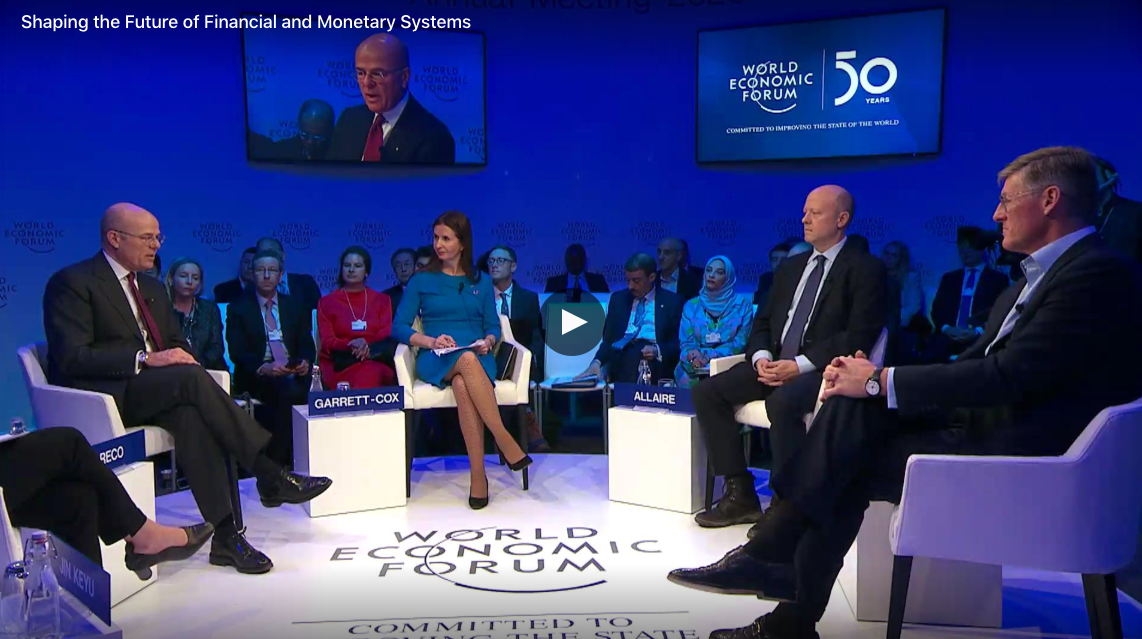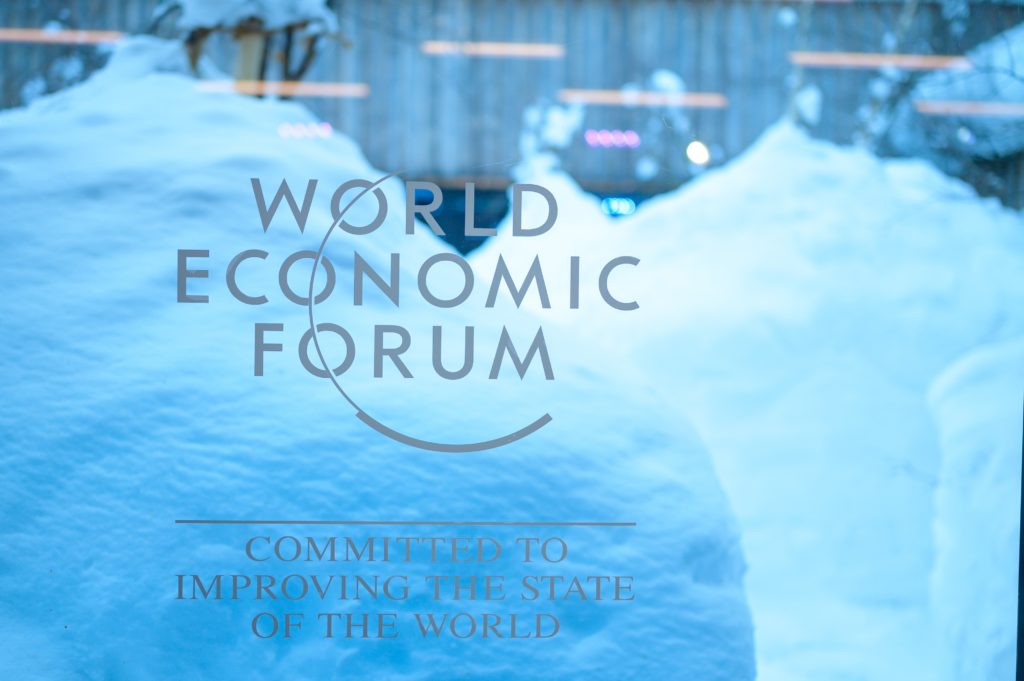
The five-day World Economic Forum wrapped up late last month. The event, based in Davos, Switzerland, hosted some of the brightest minds in the world to speak on some of the biggest issues facing our society today.
We combed through the agenda to bring you a view of the discussions through a fintech lens. Here’s a summary of some of the most interesting fintech-related topics covered at the global event.
Shaping the Future of Financial and Monetary Systems
The majority of this session wrestled with digital transformation. One of the overarching themes in this discussion as it related to digital transformation was the idea that we’ve recently reached a major inflection point in the banking industry. That is, banks are no longer adding products and services to their existing models, but the very nature of how they operate is beginning to change. And as these changes happen, banks can only move as fast as their customers are willing to move alongside them.
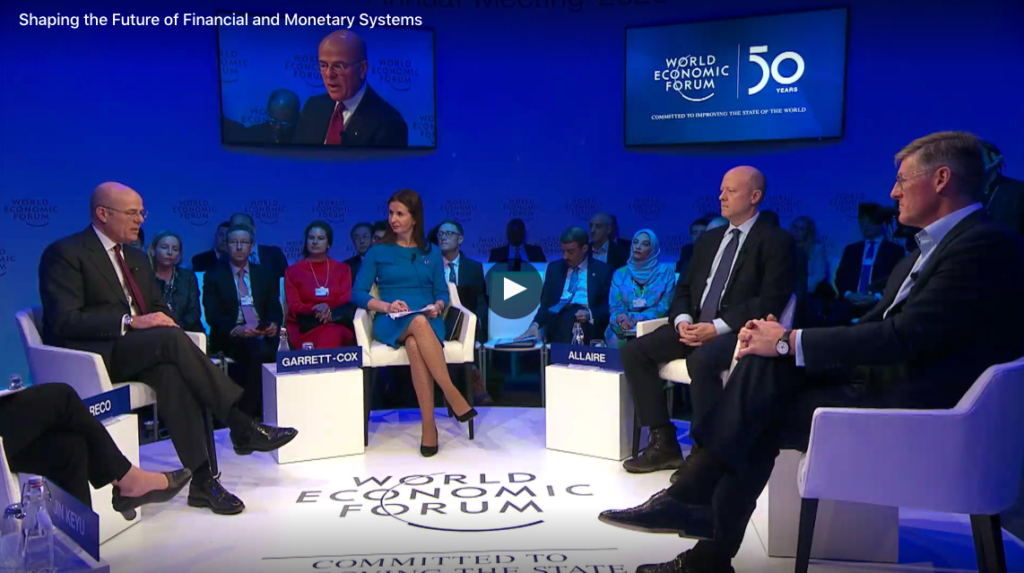
Shaping the Future of the Digital Economy
This panel represented a range of industries. Specific to the financial services industry, PayPal CEO Dan Schulman said he expects the fintech industry to see more innovation in the next five years than it has seen in the last 30. The cause of this development speed comes down to AI. Along with AI, digital transformation was another hot topic. The panel agreed that digital transformation has opened up new opportunities and in many cases requires firms to revamp their entire business model.
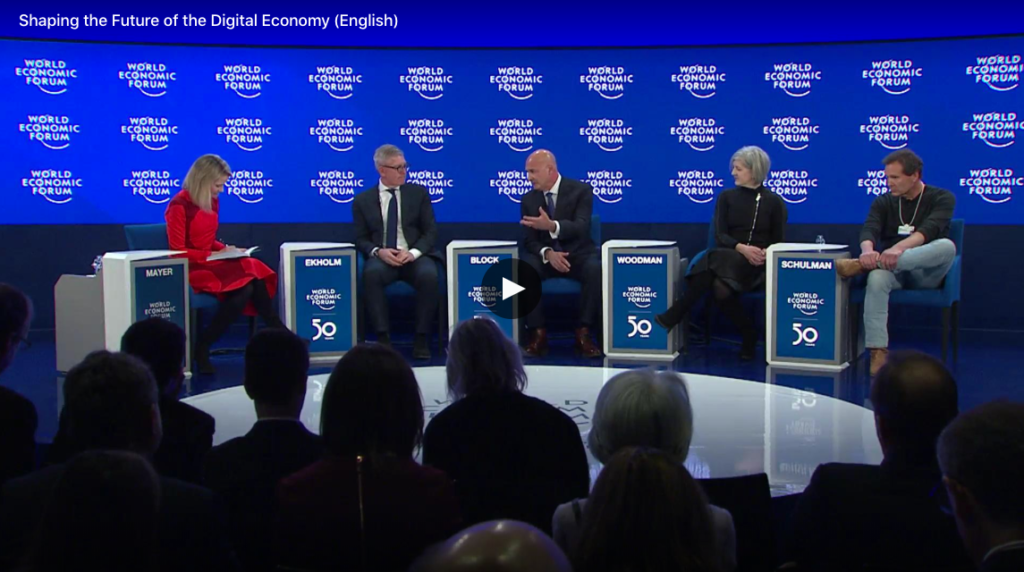
From Token Assets to a Token Economy
This session sought to answer the question, “how can tokenization make illiquid assets accessible without creating new financial risks?” The panelists explained how tokenization makes fractional ownership possible with physical goods, such as a famous painting or a piece of real estate. One overarching theme that pulsed throughout the discussion is that global regulation is behind in the tokenized asset realm. So while technology may be advanced enough for a tokenized asset economy, we are still many years away from it being commonplace.
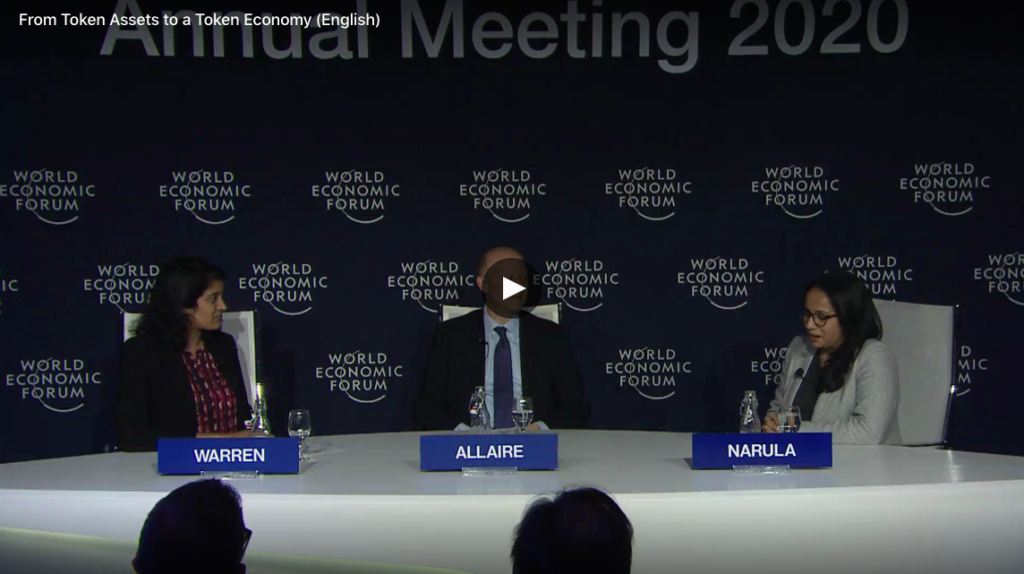
How to Implement Responsible AI
The World Economic Forum has teamed up with the government of Singapore to create a model framework of governance for the use of AI. This panel discussed the new framework and how it addresses the explainability of AI, which aims to be simple enough for all players to understand. As a part of the effort, the group has also released a toolkit for boards of directors to understand how to conduct AI oversight.
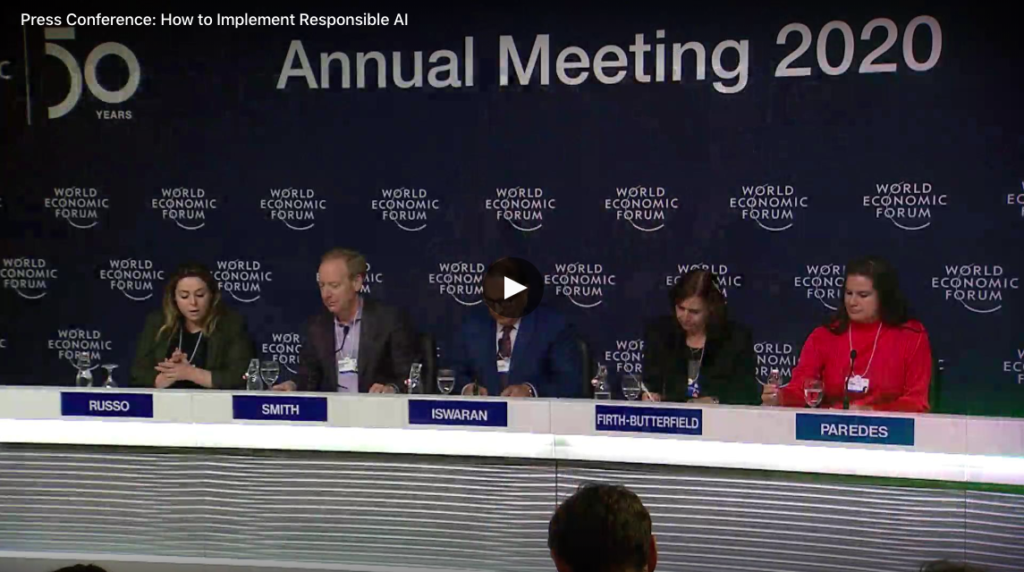
The Real-World Impact of 5G
This session hosted representatives from Verizon, Qualcomm, and ABB. The group addressed political and policy issues around security and trust. Secondary to the conversation were social concerns. The first considered if 5G will cause a digital divide between societies that have 5G and those that do not. The other social concerns addressed were potential climate change and health concerns.
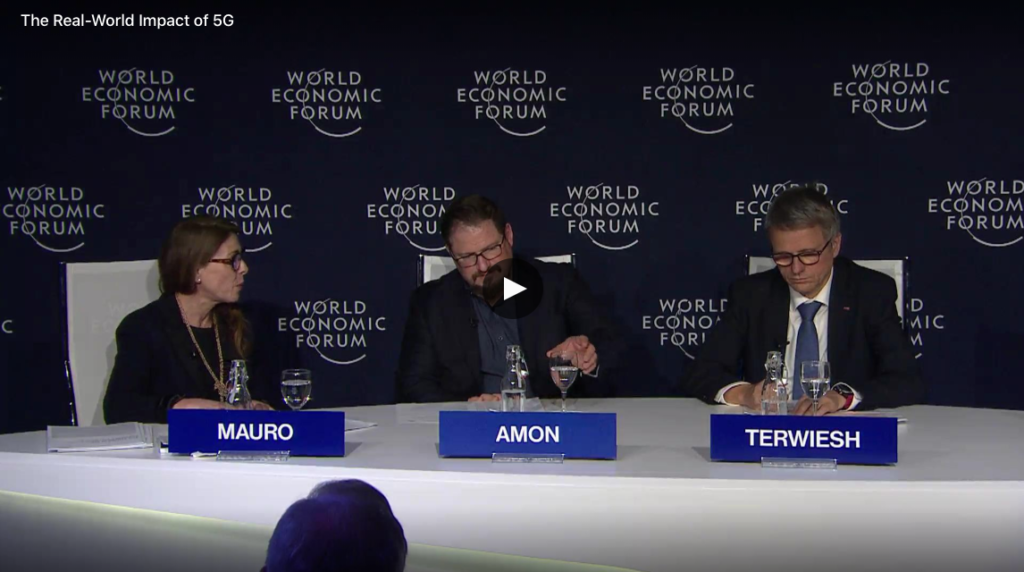
Global Cybersecurity Outlook
The general consensus of this panel is that we are currently losing the battle of cybersecurity. The panelists looked at who is ultimately responsible to act as the authority to govern fraudsters, discussed the balance between security and consumer privacy, and considered whether businesses’ cybersecurity spending is happening in the right areas. Finally, the panelists concurred that security is not an IT problem, but that it is a business problem and everyone at the organization should be a security expert to some extent.
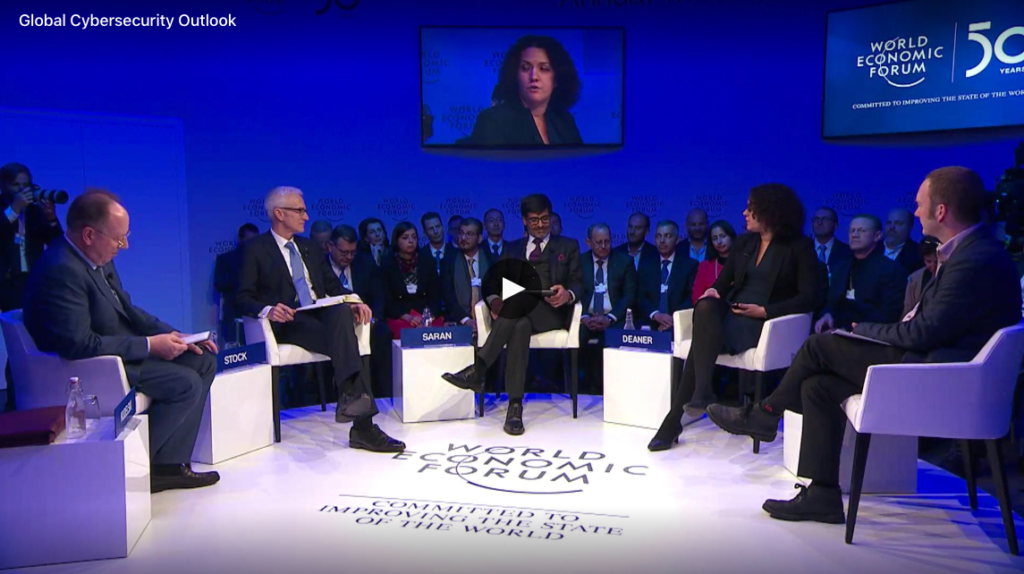
Creating a Credible and Trusted Digital Currency
This discussion looked at opportunities, challenges, and concerns around digital currencies. The panel acknowledged that digital currency adoption has a certain and definite future. Representatives addressed real use cases, including cross-border payments, financial inclusion, and fraud prevention. Among the discussion points were stablecoin competition, central banks’ participation, as well as cultural effects. Much of the dialogue circled back to digital currencies issued by central banks (CBDCs).
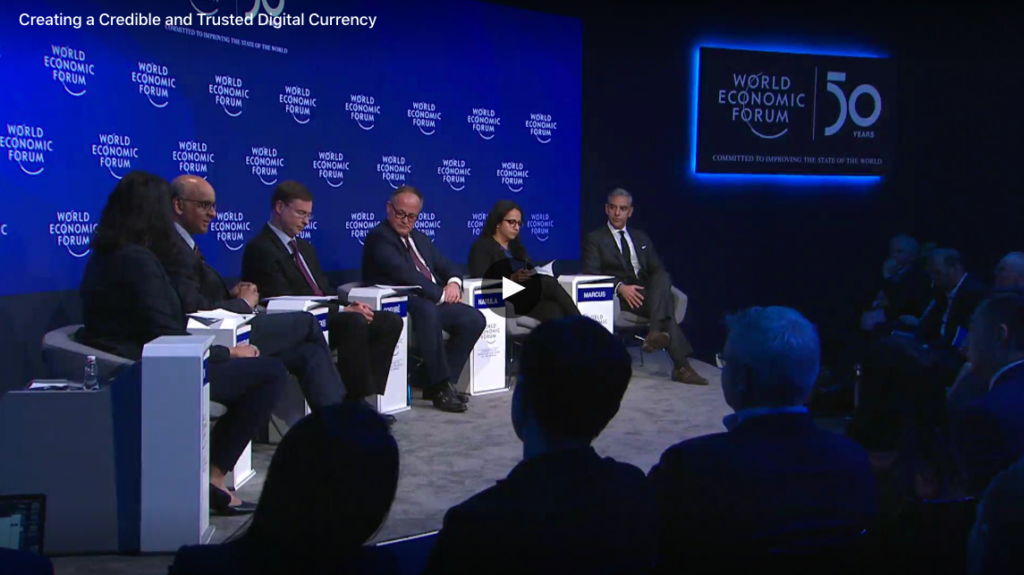
Other sessions worth a look include Valuing Unicorns, Building Trust in Data Flows, and Investing in the next Frontier.
